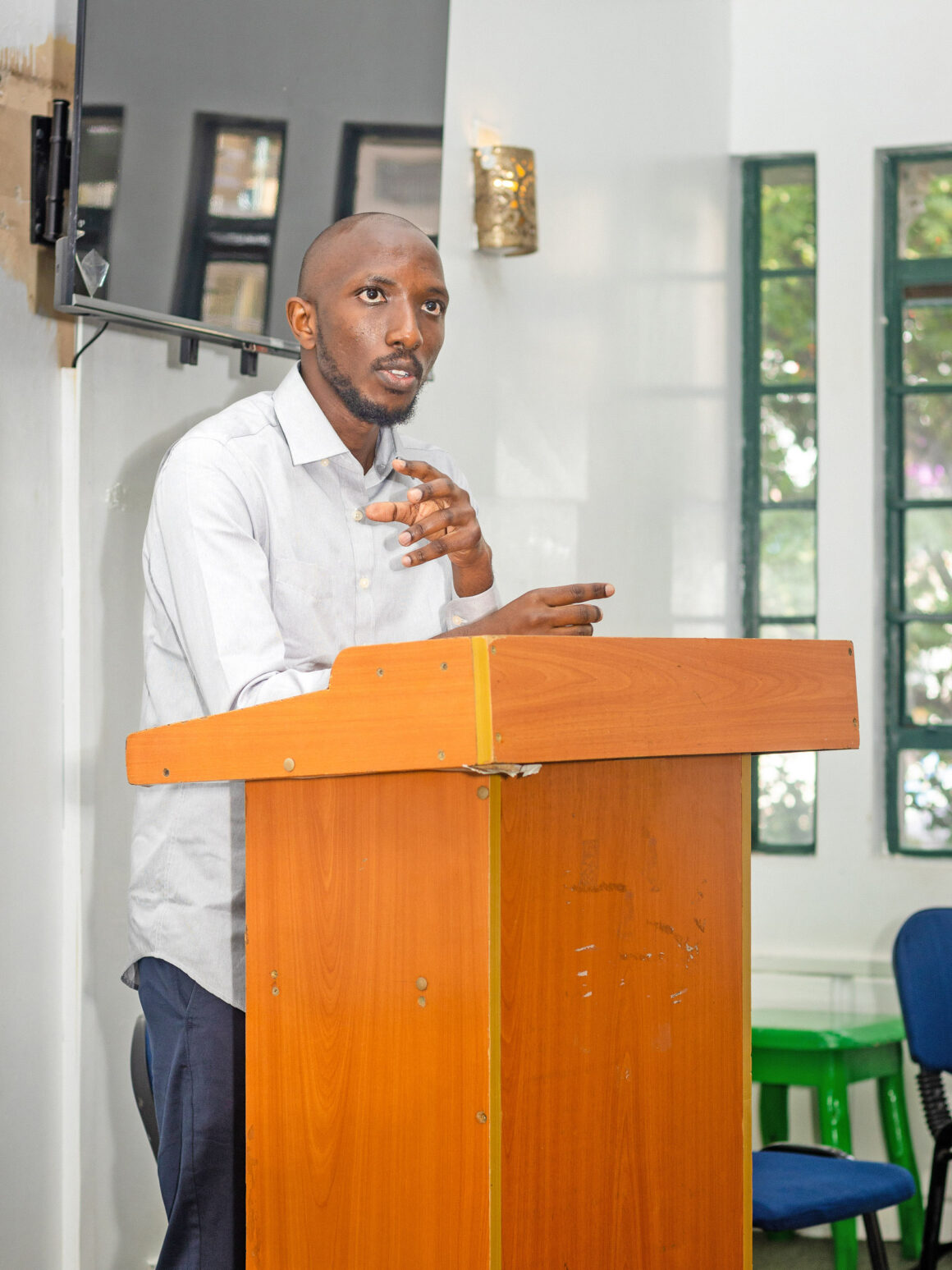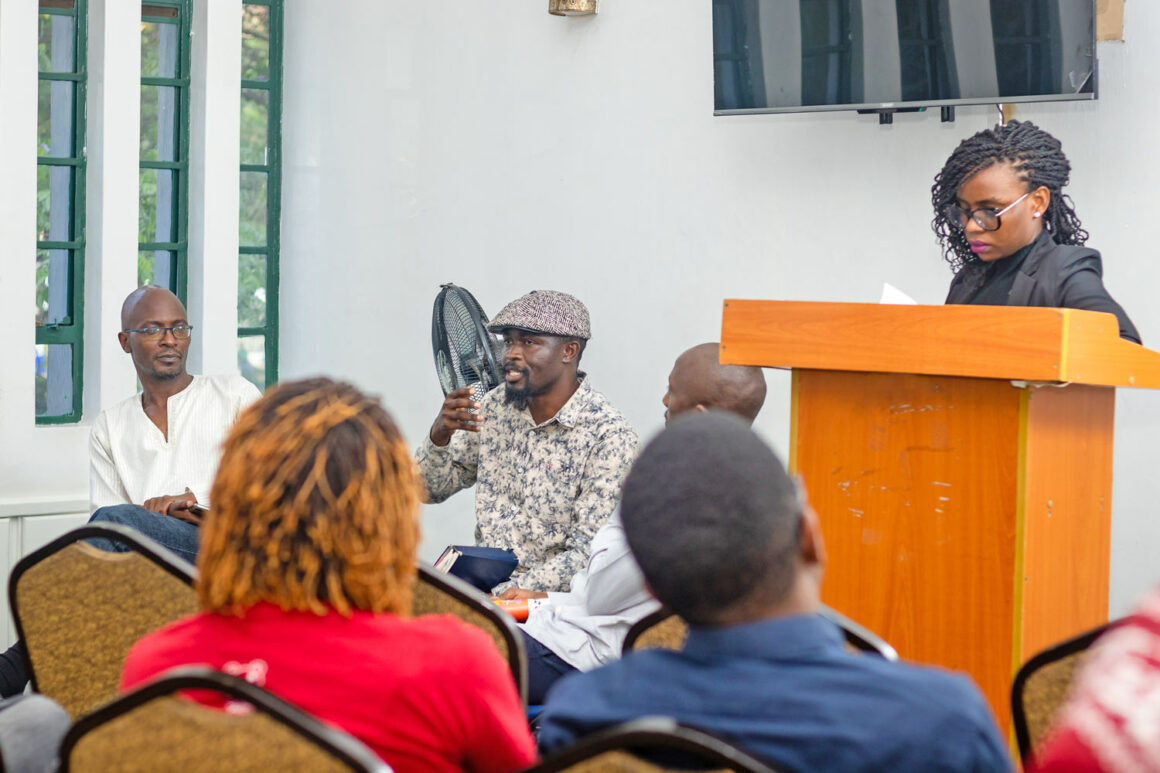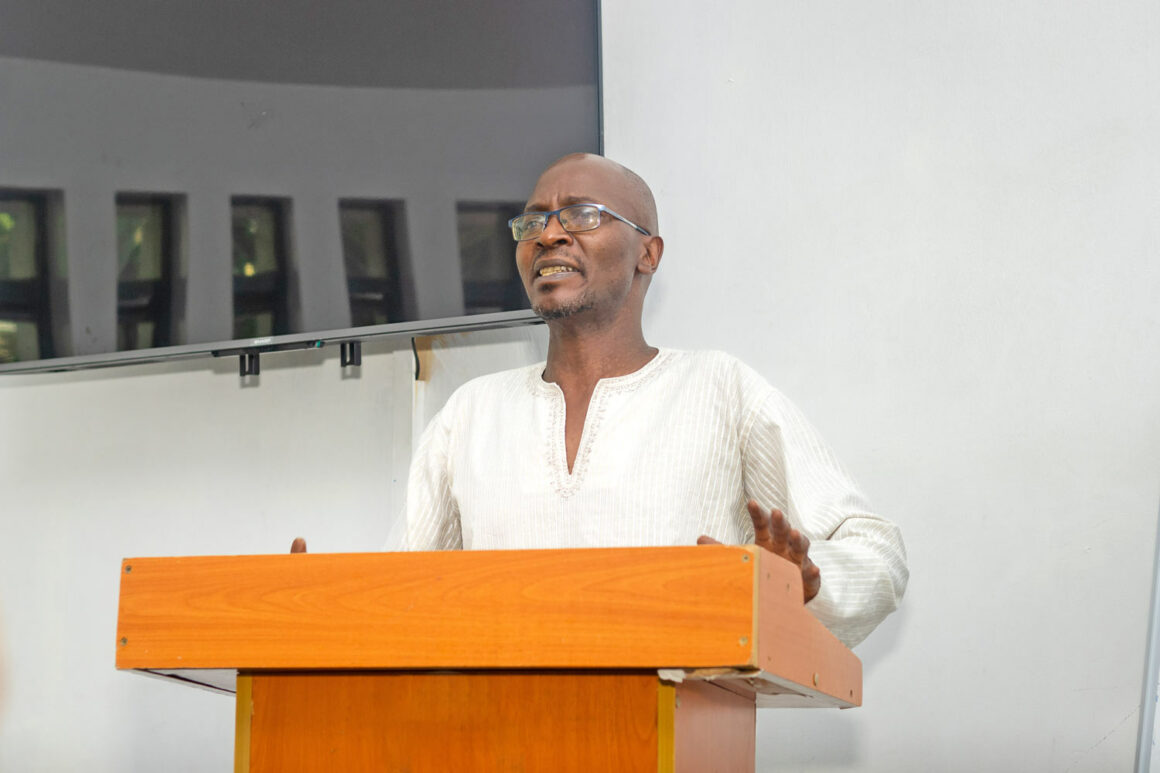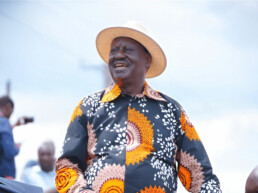Renowned Kenyan Award Winning Filmmaker, TV Director, and Writer Simiyu Barasa, described Eric Rugara who is the author of the short story collection ‘A Surreal Journey To Discovery’, as the most exciting writer he had read in the past 10 years. This was on the 2nd of December 2023 during a first-of-its-kind symposium on surrealism writing in Kenya. The symposium was held at the Wangari Maathai Hall, at the August 7th Memorial Park, located in downtown Nairobi.
This symposium was organized by Eric Rugara as part of his attempts to promote A Surreal Journey To Discovery, which is his debut collection of surreal short stories and one of the most acclaimed Kenyan books of 2023. This event saw various creatives and radiant surrealism aficionados come together to dialogue on the complexities of the genre and its relevance in Kenya. Among the audience were renowned Journalists Eddy Ashioya, and Silas Nyanchwani alongside writers Ali Hassan and Njoki Maina, Jane Wairimu, and Thuo Patrick Jr among many others.

Illuminating Sessions
The MC for the event was the prolific Kenyan poet Odhiambo Kaumah, and the symposium involved three sessions where the idea of surrealism as something that exists constantly in our African setting, and also the question of it as a literary genre potentially existing in Africa where magic is considered ‘witchcraft’ at times, were explored.
The first session had Scholar V. Akinyi, Eric Rugara’s editor who in her blurb for the book describes it as one that is ‘intriguingly creative’, kick off the event by narrating a story that explored the otherworldly perceptions every human at one time have on themselves.
The second session saw Simiyu Barasa give his views on Rugara’s book which he had previously reviewed for Maisha Yetu. He described it as one of the few self-published books that lacked the kindergarten mistakes which Kenyan self-published writers are prone to, before hinting on how it reminded him of Franz Kafka’s best-known work, Metamorphosis. In this session Simiyu posed the question why in Kenya, a country where surrealism is a concept visible in daily life, the movement hasn’t been translated into our literature, before ending his speech with the quote “In this realm as in any other, I believe in the pure Surrealist joy of the man who, forewarned that all others before him have failed, refuses to admit defeat, sets off from whatever point he chooses, along any other path save a reasonable one, and arrives wherever he can” which he derived from the first Surrealist manifesto written by the French writer André Breton and released in 1924.

The third and final session saw a panel discussion moderated by Scholar V. Akinyi with Rugara, Simiyu and the MC Odhiambo, in conversation on the core of surrealism, how to determine it and its relevance to our daily lives as Kenyans. During this final session Rugara also got to explain the poetic instinct that fuels his surrealist writing.
The History of Surrealism
Talking with Eric after the event, he explained how the surrealism cultural movement developed in Europe in the aftermath of World War I. According to its leader, the Frenchman André Breton, its main aim was to “resolve contradictory conditions of dream and reality into an absolute reality, a super-reality or surreality”. The surrealism movement produced works of painting, writing, theatre, filmmaking, photography and other media which featured the element of surprise, unexpected juxtapositions and non sequitur. In 1924, André Breton and Yvan Goll published the Surrealist Manifesto, officially launching the movement.
The most important center of the movement was Paris, France, from where it spread around the world impacting visual arts, literature, film, and the music of many countries and languages, as well as political thought and practice, philosophy and social theory. Sigmund Freud’s work with free association, dream analysis and the unconscious was of utmost importance to the surrealists in developing methods of liberal imagination. They embraced idiosyncrasy while rejecting the idea of an underlying madness. Salvador Dali, the Spanish surrealist painter, remarked, “There is only one difference between a madman and me. I am not mad.” In brief, to mean there is a method to the madness; that it is deliberate and has an objective.
Another element, which Rugara admitted to personally being really drawn to, was that they emphasized that one could combine, inside the same frame, elements not normally found together to produce illogical and startling effects.
Eric Rugara’s Mission
On intervals in between the symposium sessions, Rugara explained to the audience how he himself endeavored to come up with stories inspired by this 20th century Avant-garde movement. First he pointed out that every writer, not only those in the surrealism genre, must be open to tap into both the conscious and the unconscious as well, which we all know truly exists.
Rugara discussed at length how surrealist writing often prioritizes the exploration of individual characters, delving into their inner thoughts, dreams, and desires, placing a notable emphasis on the character’s experience over a conventional focus on the linear concept of the story. According to Rugara, to fully grasp the essence of a surreal story, you better first understand the characters in it. One must also understand one’s personal mind and at the same time follow their heart in order to understand surrealism. Rugara explained this by giving an example of the famous actor Owen Wilson, who is known to resist embodying the new characters he is scripted to and instead bringing his own essence into the characters instead. Owen Wilson is known for improvising the line “You know how they say we only use 10 percent of our brains? I think we only use 10 percent of our hearts” in the 2005 American romantic comedy film Wedding Crashers.

Eric Rugara who is a purveyor of the Japanese concept Wabi-Sabi, which is a worldview centred on the acceptance of transience and imperfection, is on a mission to narrate Kenyan stories by taking into account his knowledge on surrealism to narrate on the experiences of his country men. In the era of rapidly shifting ideals and incentives, this is a writer who is daring enough to use supernatural and unreal narrative elements to tell the African story in an unique and original way.
Frank Njugi
Frank Njugi is a Kenyan Writer, Page Poet, Culture Journalist and Critic. He has written for platforms such as Debunk Media, The Standard Kenya Newspaper, Sinema Focus, Afrocritik, The Cauldron,The Moveee, Africa in Dialogue, Brittle Paper, Salamander Ink Magazine and others. He tweets as @franknjugi




